
Fly Cirrus 14 (2017)
This phone comes equipped with a 5 inch IPS display, a Mediatek MT6737T chipset, and 2 GB of RAM.
Navigate through its features, both the gems and quirks!
Table of Contents
- Fly Cirrus 14 specifications
- Weight, dimensions, colors
- System, chipset, performance
- Display type, size, resolution
- Memory, storage
- Cameras, flash
- Connectivity, network, wireless
- Battery type, capacity, charger
- Features, sensors, specials
- Verdict, pros and cons
This article shares our personal experiences and thoughts about using the Fly Cirrus 14 smartphone. We hope to offer helpful insights to others interested in this device.
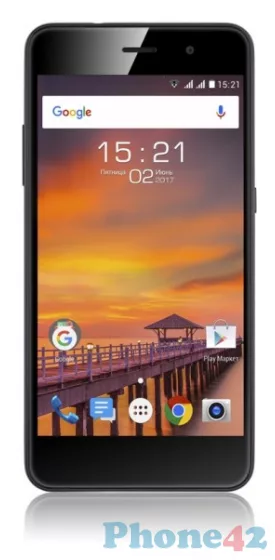
Fly Cirrus 14 specifications
| Brand | Fly |
|---|---|
| Name | Cirrus 14 |
| Model | FS522 |
| Release date | 2017 |
Weight, dimensions, colors
| Weight | 4.52 oz |
|---|---|
| Dimensions | 5.67 x 2.78 x 0.33 inch |
| Colors | blue |
| SIM type | Nano SIM, Micro SIM |
The weight of Fly Cirrus 14 is about 4.52 oz with battery. This is average for smartphones of the same size. Smartphones use a Nano SIM as a small chipcard for a subscriber identity module (SIM). A micro SIM is a smaller version of the standard SIM card used in mobile devices.
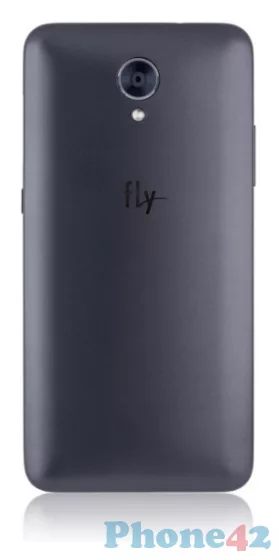
System, chipset, performance
| OS version | Android OS v7.0 (Nougat) |
|---|---|
| SoC | Mediatek MT6737T |
| CPU | Quad-core 1.5 GHz Cortex-A53 |
| GPU | Mali-T720 MP2 |
The Fly Cirrus 14 comes with Android OS v7.0 (Nougat) out of the box. The Android operating system uses the Linux kernel as its foundation. It includes a user interface, middleware, and many pre-installed applications. The mid-range CPU can deliver fast, efficient performance for many tasks. Many mobile devices use ARM Mali GPUs. They are well known for their good performance and power efficiency.

Display type, size, resolution
| Display type | IPS |
|---|---|
| Screen size | 5 inch |
| Resolution | 1080 x 1920 px |
| Multitouch support | yes, up to 5 fingers |
The 5 inch IPS display has better features. These include optimal viewing angles, color accuracy, and unchanging color reproduction. The 5 inch display make this smartphone pocket-friendly. The size of the screen is measured diagonally, from corner to corner.
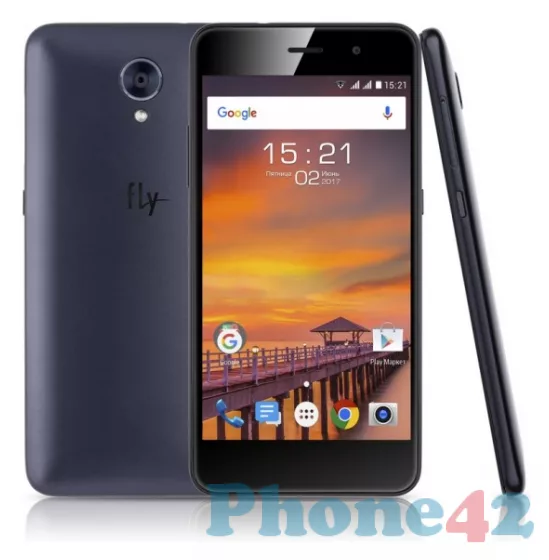
Memory, storage
| RAM | 2 GB |
|---|---|
| Internal storage | 16 GB |
| Memory card slot | microSD |
The smartphone has 2 GB of RAM. It can run many apps at once without much lag or slowness. The needed RAM amount for good performance depends on factors. These include the OS, the apps, and the services we use. Most people think a smartphone needs at least 32 GB of storage. The Cirrus 14 has only 16 GB. We can expand the internal storage (16 GB) with a compatible microSD card.

Cameras, flash
| Main camera | 13 MP, 4160 x 3120 px, autofocus |
|---|---|
| Flash | LED |
| Selfie camera | 5 MP |
This single camera can be enough for many smartphone users, it depends on their photography needs and preferences. The Cirrus 14 comes with a basic camera setup and lacks any advanced features.
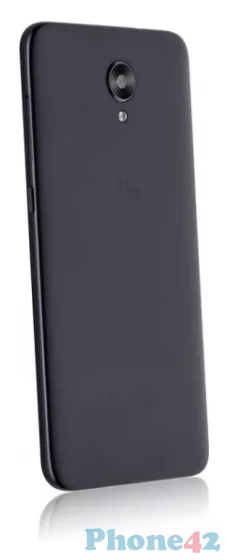
Connectivity, network, wireless
| GSM 2G bands | 850 / 900 / 1800 / 1900 |
|---|---|
| Network coverage | 2G / 3G / 4G |
| Wi-Fi | Wi-Fi 802.11 b/g/n |
| Bluetooth | v4.1, A2DP |
| GPS | A-GPS |
| NFC | no |
| FM radio | yes |
| USB | microUSB 2.0 |
| Headphone | 3.5 mm jack |
Worldwide, people use 4G networks. They have become the standard for mobile networks in many countries. The phone is capable of connecting to Wi-Fi networks. The Cirrus 14 smartphone is capable of connecting to Bluetooth devices. The GPS allows this smartphone to find their exact location. It provides accurate navigation and mapping. The phone isn't NFC (Near Field Communication) capable. NFC is not essential for basic phone functionality, but it can be useful. The 3.5 mm headphone jack allows us to connect wired headphones or earphones to the device.
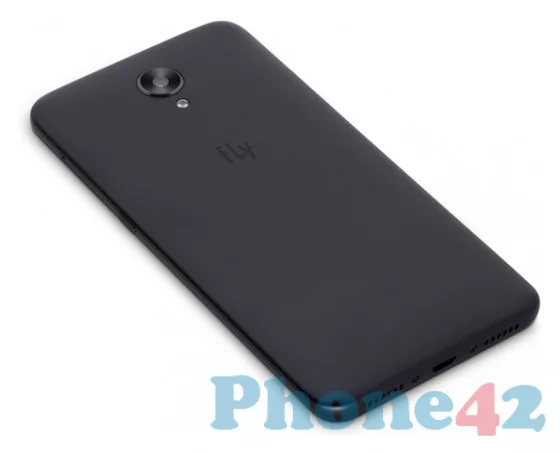
Battery type, capacity, charger
| Type | Li-Po 2400 mAh, non-removable |
|---|
The Li-Po 2400 mAh, non-removable battery gives the smartphone a good battery backup. The lithium polymer (Li-Po) battery is a light-weight, rechargeable battery. The battery of Cirrus 14 isn't removable without voiding the warranty.
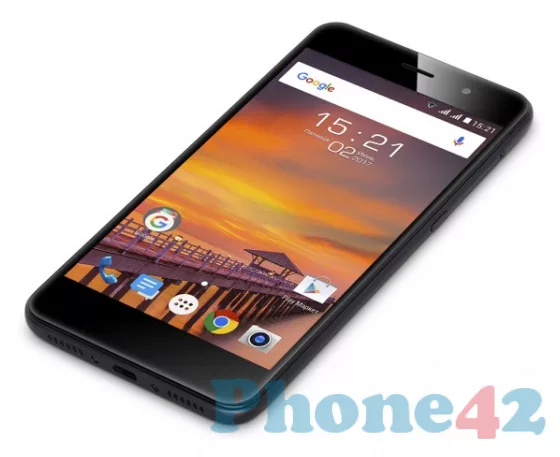
Features, sensors, specials
| Sensors | accelerometer, light, proximity |
|---|---|
| Specials | Dragontrail glass, Dual SIM |
Today, smartphones come with many sensors. They help make the user experience better. The Cirrus 14 smartphone has an accelerometer. The light sensor detects the level of light in the environment. Dual SIM is great for businesses. They want to give staff a device with separate numbers and bills for personal and business use.
Verdict, pros and cons
Every phone has its strengths and weaknesses, and this Fly phone is no exception. As with any device, there are aspects that shine and others that fall short. By examining both sides, we can paint a complete picture of what this phone has to offer. Let's explore its standout features and areas for improvement. Remember, this is just my opinion, and yours might be different.
Pros
- microSD slot
- Dual SIM support
Cons
- limited-size screen
- insufficient internal storage
- single camera setup
- no OIS function
- no 5G support
- no NFC feature
- no Type-C USB port
- low-capacity battery
- no digital compass
- no fingerprint reader
Please let us know if you find incorrect information or something isn't working. Also, tell us if you have a suggestion for improvement.
Updated: May 11, 2024
 I'm Lucas Bradley, the founder of the Phone42.com site. I love technology, especially smartphones, and I've been working with tech stuff for more than 20 years. This means I've seen a lot of changes and have learned a bunch about what makes a good phone. On Phone42.com, I look at all kinds of phones. They can be from big, well-known companies or new ones trying to make their mark. I want to help people understand what's new and cool in the world of smartphones, in a way that's easy to get.
I'm Lucas Bradley, the founder of the Phone42.com site. I love technology, especially smartphones, and I've been working with tech stuff for more than 20 years. This means I've seen a lot of changes and have learned a bunch about what makes a good phone. On Phone42.com, I look at all kinds of phones. They can be from big, well-known companies or new ones trying to make their mark. I want to help people understand what's new and cool in the world of smartphones, in a way that's easy to get.